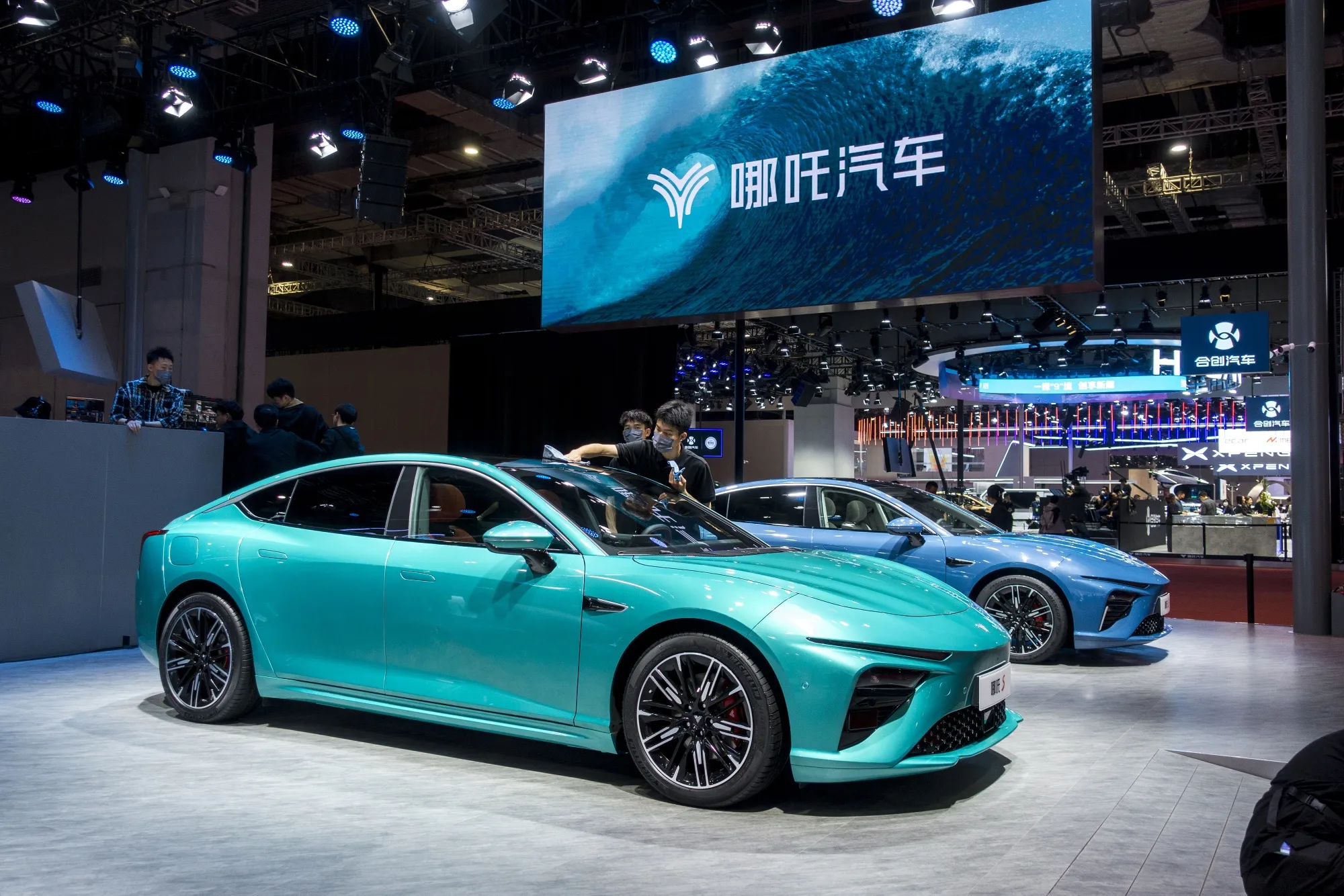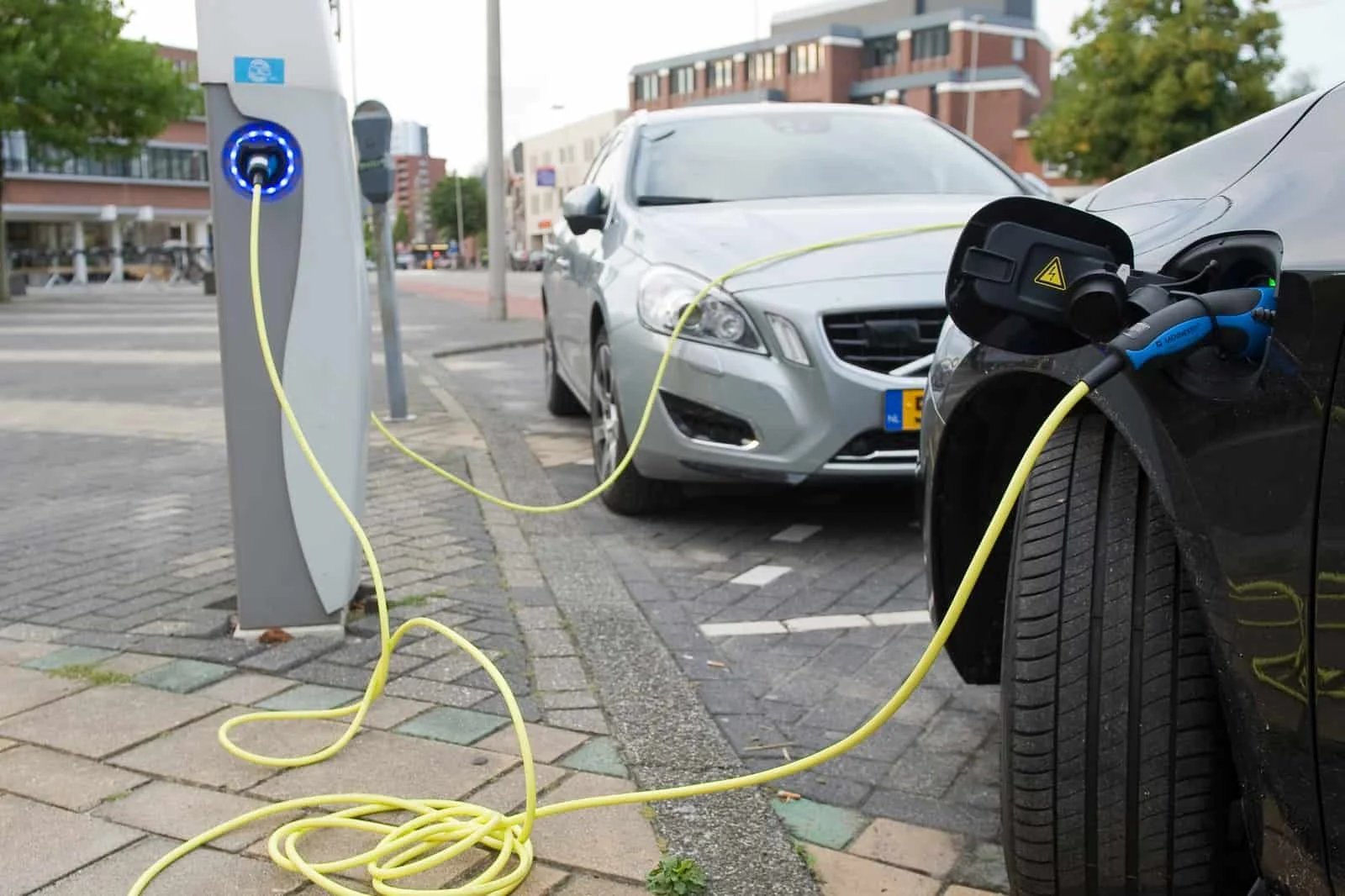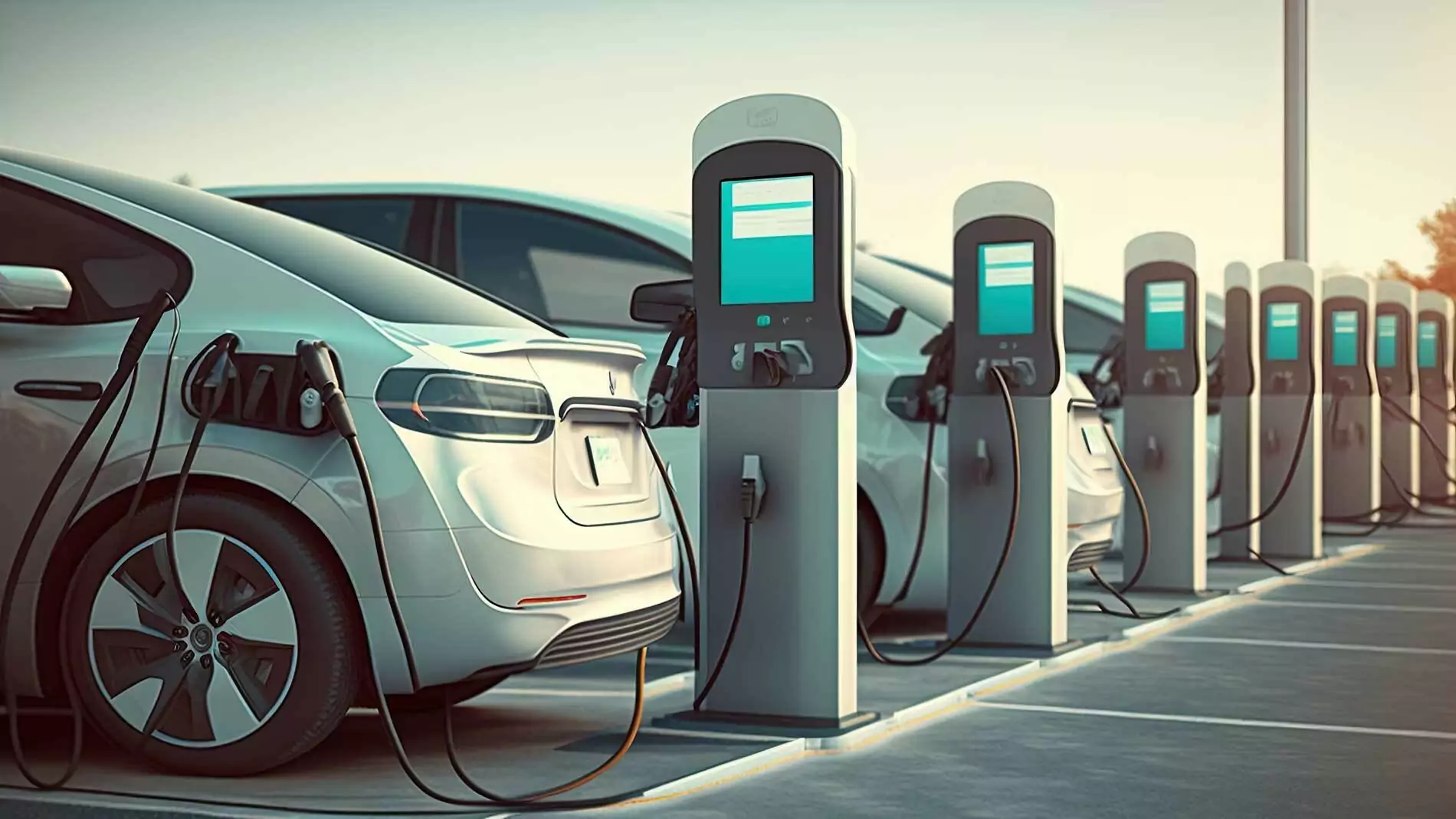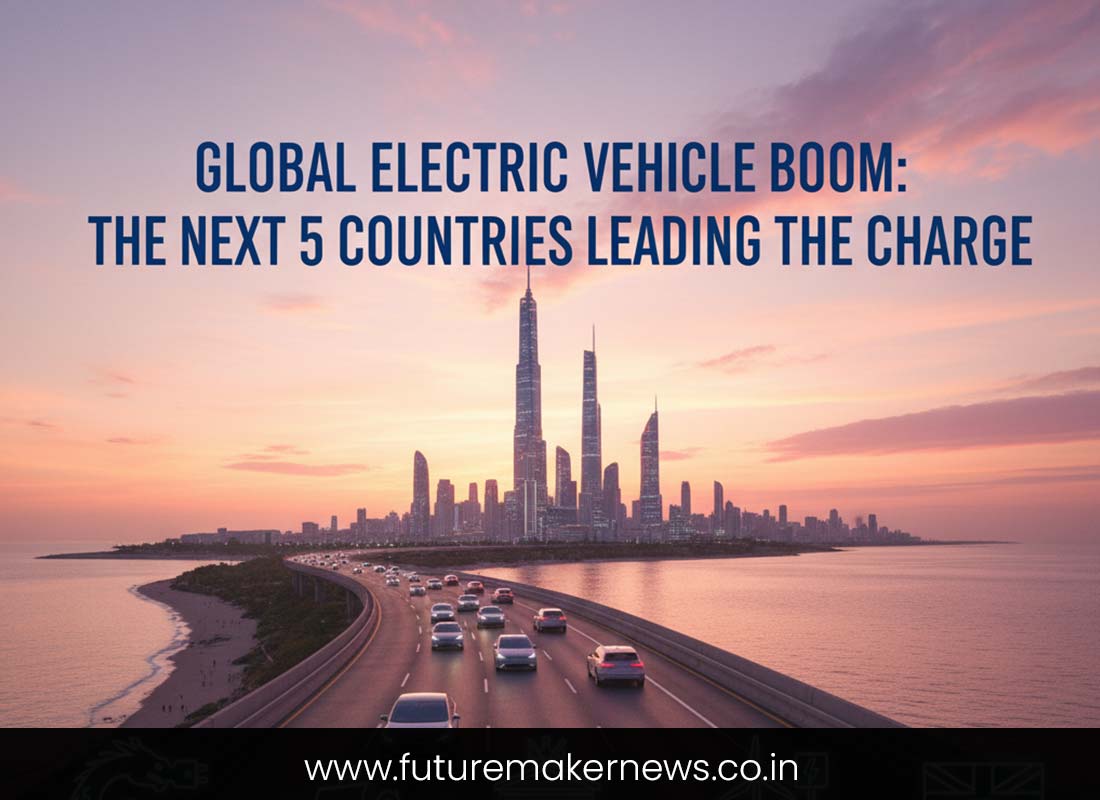Introduction: The Rise of Electric Vehicles
The electric vehicle (EV) market is no longer a futuristic concept; it’s rapidly becoming the mainstream mode of transportation around the world. Governments, car manufacturers, and consumers are increasingly embracing electric vehicles, driven by the need for more sustainable, eco-friendly, and cost-efficient transportation options. From reducing carbon emissions to addressing air pollution and rising fuel costs, EVs are revolutionizing the way we think about cars.
As countries strive to meet their climate goals, EV adoption is accelerating. While China, Europe, and the United States have long been at the forefront, several other nations are emerging as key players in the EV revolution. In this post, we will look at five countries that are leading the global electric vehicle boom and explore the factors driving their success.
1. China: The Unstoppable EV Giant

China has been at the helm of the electric vehicle revolution for years, and it shows no signs of slowing down. As the world’s largest car market and the biggest EV producer, China is setting the pace for global EV adoption. In fact, the country accounted for almost 50% of global EV sales in 2020, and its commitment to electric mobility is only growing stronger.
Government Support and Incentives
The Chinese government has been instrumental in supporting the growth of the electric vehicle industry. Through subsidies, incentives, and aggressive regulatory measures, China has created an environment where EVs can thrive. The government has rolled out policies such as tax breaks for EV buyers, rebates for manufacturers, and heavy investments in EV infrastructure. Moreover, China’s “Made in China 2025” initiative aims to make electric vehicles and battery technologies a cornerstone of its industrial future.
EV Manufacturing Powerhouse
China is home to some of the world’s largest and most innovative electric vehicle manufacturers. Companies like BYD, NIO, XPeng, and Geely are not only dominating the domestic market but also expanding globally. Chinese automakers are quickly gaining recognition for their high-quality electric vehicles, with an increasing number of EVs finding their way into international markets.
Battery Production and Infrastructure
China also leads the world in electric vehicle battery production. Chinese companies like CATL (Contemporary Amperex Technology Co. Limited) are the biggest suppliers of lithium-ion batteries, which are crucial for powering EVs. The country’s massive investment in EV charging infrastructure is another key factor in its leadership. By 2025, China aims to have over 4.8 million EV charging stations, ensuring that its citizens have convenient access to charging facilities.
2. Norway: A Pioneer in EV Adoption

Norway has become a global leader in electric vehicle adoption, and its success serves as a model for other nations. As of 2021, electric cars make up over 50% of all new car sales in Norway. This Scandinavian country has not only embraced electric vehicles but has also created a thriving ecosystem that supports their widespread use.
Tax Incentives and Benefits
The Norwegian government has implemented a variety of policies to encourage EV adoption, including tax exemptions, toll-free travel on highways, free parking, and access to bus lanes for electric vehicles. These incentives significantly reduce the cost of owning and operating an EV, making it an attractive option for consumers. In fact, Norway aims to become the first country to fully transition to electric cars by 2025.
Sustainability and Clean Energy
Norway’s strong commitment to environmental sustainability also plays a critical role in the EV boom. With a vast supply of renewable energy, especially hydropower, Norway’s electricity grid is clean, making it one of the best countries in which to drive an electric vehicle. This commitment to clean energy ensures that electric cars in Norway are powered by the most eco-friendly source available, making the transition to electric mobility even more impactful.
The Charging Network
Norway has an extensive EV charging infrastructure, with thousands of charging stations across the country. The government’s investments in charging networks, coupled with the widespread adoption of EVs, have created a seamless driving experience for Norwegian residents. This has helped reduce range anxiety and made the transition to electric vehicles even more convenient for consumers.
3. Germany: Europe’s EV Powerhouse

Germany, the land of iconic automotive brands like Mercedes-Benz, BMW, and Volkswagen, is now shifting gears toward a sustainable future with electric vehicles at the forefront. With its robust industrial base, Germany is not only a key player in EV manufacturing but also a major market for EV sales.
Government Policy and Incentives
Germany’s government is heavily supporting the EV transition with substantial subsidies for electric vehicle purchases. In addition, the country has implemented regulations that require automakers to meet stringent emissions standards, which are pushing manufacturers to accelerate their EV development. Germany has set an ambitious goal to have 10 million electric vehicles on the road by 2030.
Innovative Automakers
Germany is home to some of the world’s most well-known car brands, and these companies are embracing the electric revolution. Volkswagen’s ID. series, BMW’s iX3, and Mercedes-Benz’s EQ lineup are just a few examples of the country’s commitment to electric mobility. German automakers are investing billions of euros in EV technology and infrastructure to ensure they stay competitive in the global electric vehicle market.
EV Charging and Infrastructure
Germany is also making significant strides in the expansion of its EV charging infrastructure. The government is heavily investing in charging networks, with the aim of having a nationwide network of over 1 million charging points by 2030. Public-private partnerships are playing a crucial role in this effort, ensuring that EV drivers have easy access to charging stations.
4. The Netherlands: Leading the Way in EV Market Penetration

The Netherlands is another European country that is making significant strides in the electric vehicle market. While the country’s population is relatively small, its commitment to electric mobility is substantial, making it one of the leading countries in terms of EV market penetration.
Government Initiatives and Incentives
The Dutch government has implemented a variety of policies to encourage the adoption of electric vehicles. These include tax incentives, exemption from road taxes, and significant support for EV infrastructure. Additionally, the Netherlands has a policy of zero emissions for new vehicles by 2030, further accelerating the transition to electric vehicles.
Charging Infrastructure
One of the main reasons for the Netherlands’ success in EV adoption is its highly developed charging infrastructure. The country has the highest number of EV charging stations per capita, making it incredibly convenient for Dutch citizens to own and operate electric cars. This extensive network is a major reason why EV adoption has been so successful in the country.
Sustainability Focus
The Netherlands is also committed to sustainability and reducing its carbon footprint. With renewable energy sources accounting for a large portion of the country’s electricity generation, driving an electric vehicle in the Netherlands has a much lower environmental impact compared to countries that rely on fossil fuels for electricity generation.
5. United Kingdom: Accelerating Towards EV Future

The United Kingdom is on a fast track toward electrification, driven by ambitious government goals and the growing public interest in clean energy solutions. The UK’s roadmap for a greener future is seeing a steady rise in electric vehicle adoption.
Government Regulations and Incentives
The UK government has introduced various policies to help transition to electric mobility, such as grants for buying EVs and tax exemptions for electric car owners. Additionally, the UK has announced plans to ban the sale of new petrol and diesel cars by 2030, which has spurred the transition to electric vehicles. The government’s push toward zero-emission transportation aligns with its broader goals to meet carbon neutrality by 2050.
EV Manufacturing in the UK
While the UK has not yet reached the scale of some of the other countries on this list, its automotive industry is rapidly shifting toward electric production. Major UK manufacturers such as Jaguar Land Rover and Nissan are investing heavily in electric vehicle production and developing new electric models to meet demand.
Charging Infrastructure and Future Growth
The UK is expanding its charging infrastructure to ensure that EV owners have easy access to charging stations. By 2030, the government plans to have over 300,000 public charging points across the country, significantly reducing barriers to EV adoption.
Conclusion: The Road Ahead for Electric Vehicles
The global electric vehicle boom is well underway, and many countries are leading the charge in different ways. Whether through government policies, technological innovation, or consumer demand, the push toward electric vehicles is transforming the automotive landscape.
China, Norway, Germany, the Netherlands, and the United Kingdom are prime examples of how countries are adopting EVs at a rapid pace. With increasing investments in EV infrastructure, technological advancements, and supportive government policies, these nations are paving the way for a cleaner, more sustainable future.
As the global EV market continues to expand, other nations are likely to follow suit, creating a truly global shift toward electric transportation. Whether you’re an environmentally conscious consumer or a business leader looking to invest in the future of mobility, it’s clear that the electric vehicle revolution is here to stay.

